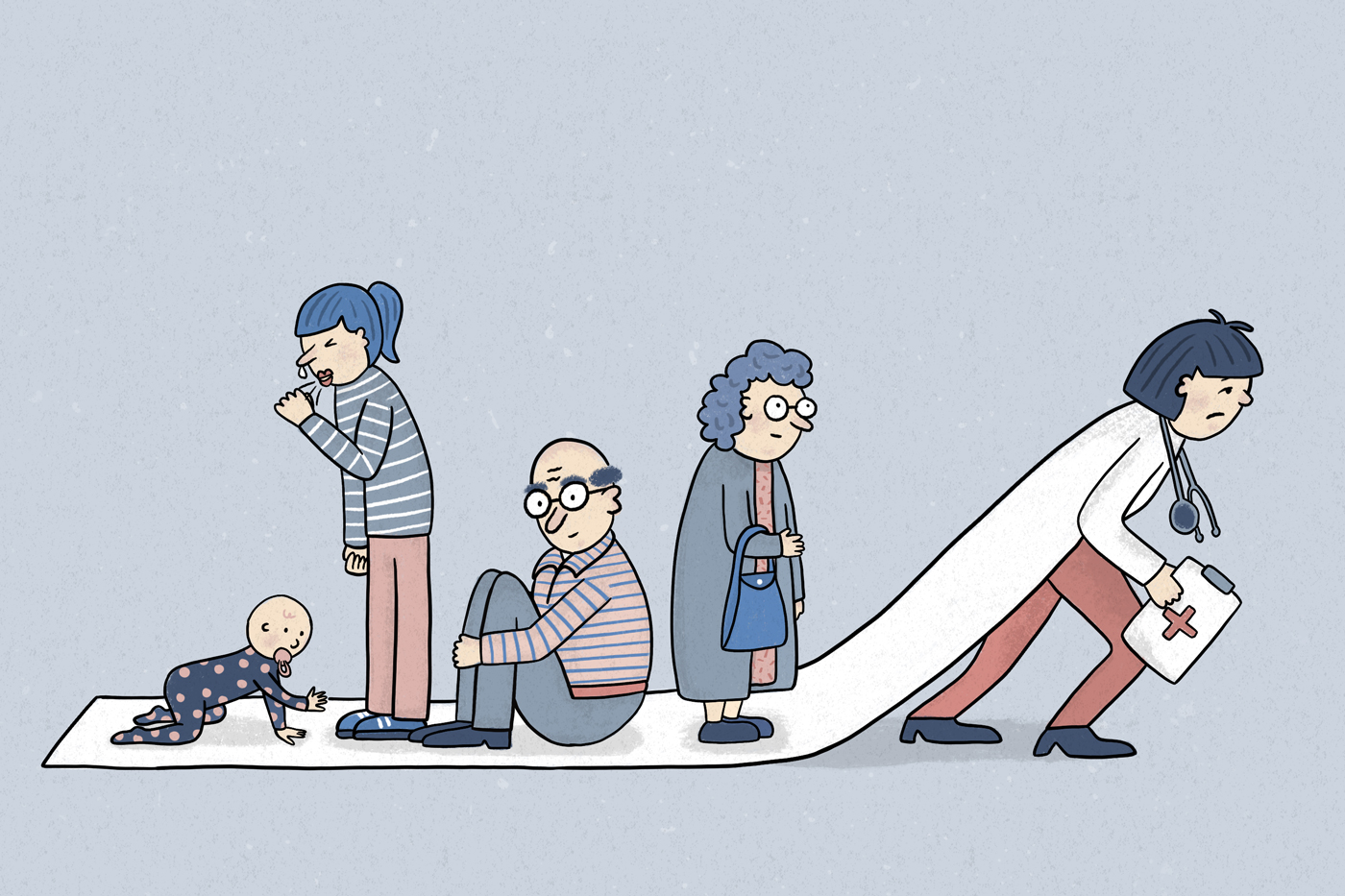“Is anyone Listening?!”
Doctors are tired of hearing about wellness – we need to do something about it instead
**I originally wrote this post for Canadian Healthcare Network**
‘We’re all just tired of being tired’.
Have you heard one of your colleague physicians say something similar to that lately? Better yet, have you ever had one of these thoughts?
“They [the government, the organization, my boss, etc.] are just saying that they care about our wellness. But they really don’t care , it’s all about politics. They are just trying to check a box”
“I am overworked and hardly have enough time for myself and my family – the last thing I want to do is an online module that’s supposed to teach me about ‘wellness’”
“We would all be a lot less exhausted of medicine if we got paid more, or at least recognized for the work that we do that no one sees”
We’ve all heard it since we were younger: actions speak louder than words. When it comes to addressing physician burnout and promoting wellness, this is no different. And yet, it’s been years of physicians ‘sounding the alarm’ that the current way things are going for doctors is not sustainable. And though we have made progress, we have a lot (a LOT!) – of work to do.
There is no doubt that physicians are tired, burned out, and overloaded with work. While the COVID-19 pandemic highlighted this fact, one can argue that burnout has been ‘building up’ for years. Inadequate funding for primary care, increased patient demand, uncompensated administrative tasks…all of these have left physicians scrambling for time, working more hours, having less time for pleasurable activities, and more.

It would be inaccurate to say that ‘little has been done’ to address – or at least identify – the issue of burnout among physicians. There is a wealth of literature that highlights the fact that doctors are burned out; there is also literature on what can be done to address burnout. The evidence strongly supports the fact that physician burnout is a real issue, and that if not addressed effectively, patient care suffers – and the entire healthcare system is impacted. Strategies to address burnout have been outlined; these interventions range from suggestions around increased compensation, dedicated time for administrative work, funding for clinical support persons, offering therapy and counselling for physicians, peer mentorship, and more.
While these strategies and interventions are, without a doubt, effective, they fundamentally ignore the fact that suggestions are just that – words until acted upon. For example, advocating for more funding for primary care is an excellent and worthwhile suggestion, but despite petitions and letters to law-makers, there is a still wide gap left unfilled. Creating peer mentorship groups is an excellent strategy that can provide great support for physicians; but without paid time off or coverage for their practices, how will physicians attend these groups?

I wish I had a solution to the issue of burnout; indeed, it would be amiss to say that there actually is one ‘solution’ because burnout is not something that we can address once and be ‘done with it’. As patient demands increase and the workload on physicians continues, we run the risk of losing our passionate and skilled physicians if we don’t act in ways that engages them and ‘meets them where they are’. Strategies to address burnout are only as useful as they are practical and tailored to the group that they are meant to support – physicians. If we really want to address burnout and create robust systems that support physicians, perhaps an approach is to stop researching what is effective, and actually do what is known to be effective. Maybe we need to stop ‘talking about burnout’ – which scales effectively measure burnout in clinical care, which funding models are ideal, how to write a good letter to the government to advocate, etc. – and actually implement these interventions. I know this is not as simple as it sounds: this takes
-governmental change on many levels (and coordination among them);
-money (which, for some reason, governments never ‘have enough of’ to fund primary care);
-human resources (which is not as simple as hiring more people – we need the right people, in the right location, with enough training and support);
-leadership and avenues to voice our opinions (which means supporting doctors and protecting them against abuse, and giving them safe spaces and opportunities to effectively make their needs heard); and
-collaboration (much like the touted concept of ‘patient centred care’, strategies to address burnout need to be ‘physician centered).
Am I implying that talking about burnout is useless? Not at all. Indeed, if we don’t talk about it, we will not be able to identify the issues physicians face, nor will we have the capacity to tailor interventions to address burnout. Talking about our emotions is also the first step to identify that struggling is universal, and this further opens the door to conversations, compassion, and hopefully, action. However, what I am arguing is that we need to move past objectifying burnout is a way that reduces it down to numbers of physicians leaving the workplace, surveys asking what contributes to burnout, guidelines that outline tools to reduce burnout, etc. Instead, let’s use our time, money, and energy to apply and integrate all of this excellent information into effective, realistic, and practical changes that actually do things to address burnout in physicians.
Groups, governments, and even physicians and leaders can all ‘talk the talk’.
But it’s time to ‘walk the walk’ – indeed, it’s been time to do this for quite a few years.
The question is - who is willing to listen to act accordingly?
